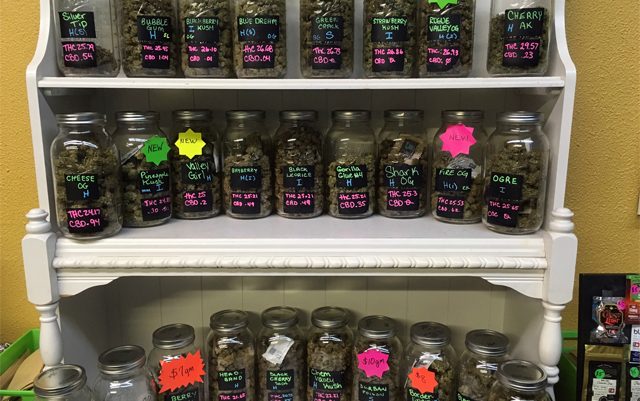There was a time, not so long ago, when the possible economic impact of marijuana legalization was something that could be debated. Proponents of legalization had logic on our side, but until legalization was put into practice, we didn’t have hard numbers.
Of course, those numbers continue to come in and the economic impact of legalization is no longer up for debate. From legal retail states like Colorado and Washington, the numbers show legal marijuana is big business and a big job creator.
New numbers out of Oregon show similar results. As of last month, over 900 licensed cannabis businesses in the state had created some 12,500 jobs directly related to the growing, processing, testing and sale of marijuana. At an average wage of just over $12 per hour, these jobs generated about $315 million in wages over the last year.
And this is just the beginning. As already legal states add more businesses and newly legal states roll out their recreational legalization and shops begin to open (especially in the massive new adult use market in California) those numbers will jump exponentially.
To put things in better perspective, there are 26 states that have a larger population than Oregon. If Oregon can generate this many jobs in such a short amount of time, imagine what states that have more cannabis consumers can accomplish.
Legalization opponents will try to downplay those numbers and point to the “rising social costs” they claim are associated with legalization, but they fail to produce any numbers to back up these claims. The fact is, the vast majority of legal marijuana consumers are people who were already illegal marijuana consumers, so whatever hypothetical social costs that are associated with cannabis use already existed before legalization.
And as things stand now in the United States, most adults do not use marijuana; but many of those people do vote, and they need reasons to vote for legalization when faced with the choice. The same goes for state and federal lawmakers. Numbers like those from Oregon can go a long way in showing non-cannabis users just what is being left on the table when prohibition is in effect. In this case, about 12,500 jobs would not exist. Those people wouldn’t be paying taxes and contributing to the economy at worst; at best they would be competing in other established sectors of the economy, lessening job opportunities for everyone looking for employment.







While all this wonderful exciting profitable commerce is going on the medical patients who desperately needed this plant to treat symptoms are simply abandoned and left to die. Smoking or vaping is impossible at most facilities for the elderly and disabled. Oral extracts are in such short supply and so expensive that maintaining any sort of therapeutic dose is beyond the reach of most patients. This isn’t medicine, this is highway robbery. Now that the money is rolling in and everyone feels safe they can promptly abandon all the medical patients they so happily used to shield themselves from federal prosecution until they could make the big bucks.